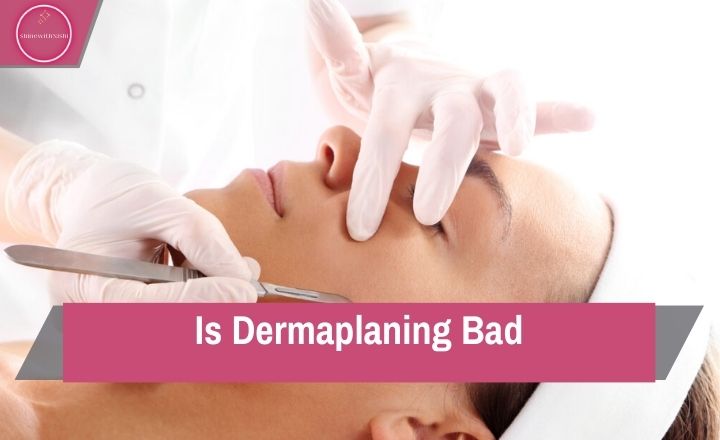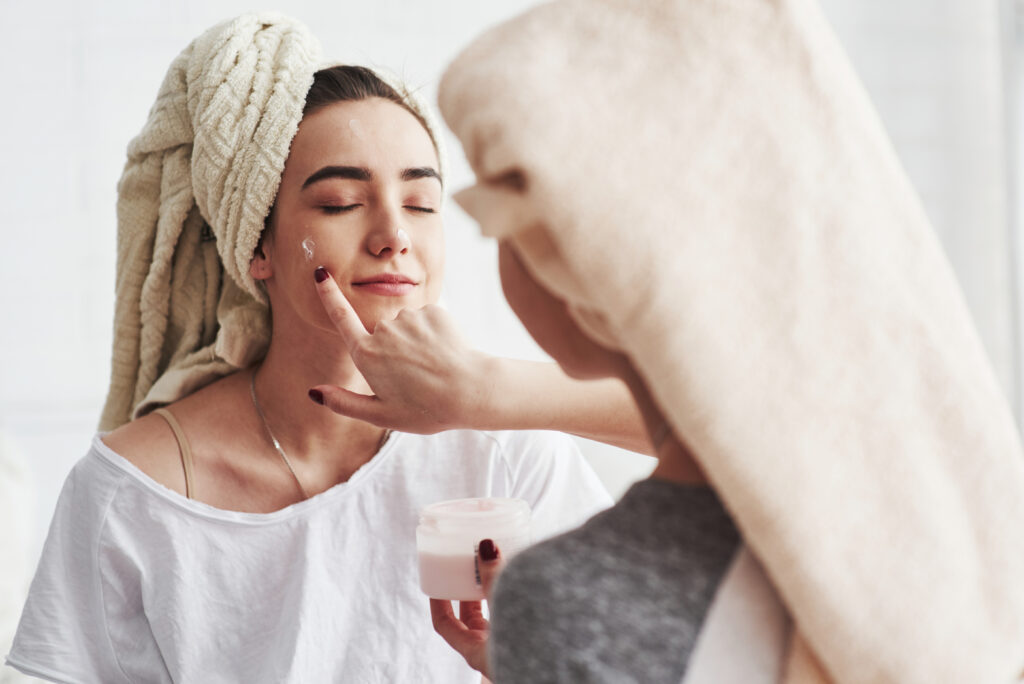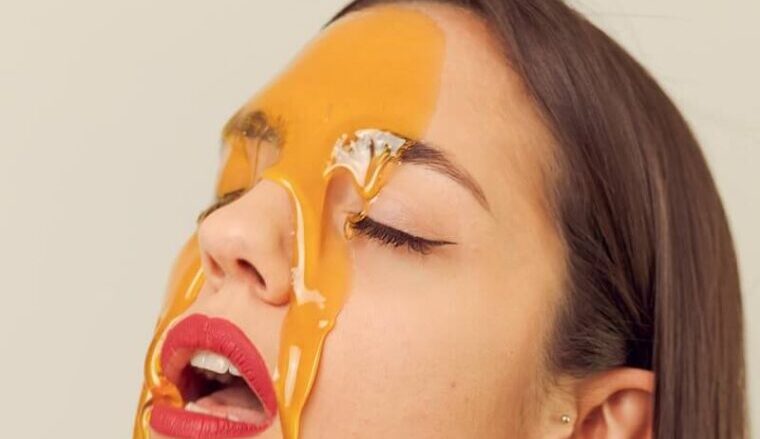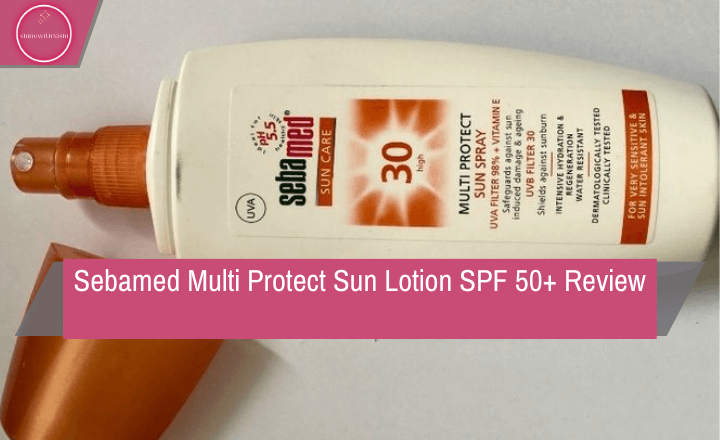Is Dermaplaning Bad, a popular way to exfoliate the face. It uses a surgical scalpel to remove dead skin cells and peach fuzz. People have questions about whether it is safe and effective. This article will look at the pros and cons of dermaplaning. It can make skin smoother, help products absorb better, and make the skin brighter. But it can also cause irritation and sensitivity for some skin types. It’s important to have professional help when getting dermaplaning. By thinking about these good and bad points, you can decide if dermaplaning is right for your skincare routine. Let’s explore together and find out the truth.
Table of Contents
ToggleWhat Is Dermaplaning
Dermaplaning is a simple cosmetic procedure. It uses a surgical scalpel to gently remove the top layer of skin, getting rid of dead skin cells and fine vellus hair. This helps reveal smoother, brighter skin and improves the absorption of skincare products. Licensed estheticians or dermatologists usually do the procedure, and it’s suitable for most skin types. Dermaplaning is quick and painless, with minimal downtime. Many people choose dermaplaning to even out their skin and improve their skincare routine.
Is Dermaplaning Bad: Pros And Cons
Dermaplaning treatment has many benefits for the skin. It removes dead skin cells and peach fuzz, making the skin smoother and brighter. This can make skincare products and makeup work better. Dermaplaning can also reduce the look of fine lines and acne scars, giving a more even complexion. There are some potential downsides to think about. Some people may have temporary redness or sensitivity after dermaplaning, especially if their skin is sensitive. There is also a small risk of nicks or cuts during the procedure if not done by a skilled professional. It’s important to think about these good and bad points when deciding if dermaplaning is right for you.
Downsides Of Dermaplaning Treatment
Dermaplaning treatment, while popular for its exfoliating and smoothing effects, does have some potential downsides to consider.
Breakouts
Dermaplaning is a popular way to exfoliate, but it has some downsides. It can irritate sensitive skin or conditions like rosacea. There’s a risk of getting small cuts during the treatment, which can lead to infection if not taken care of. Dermaplaning may not be good for people with active acne or inflamed skin, as it can make these conditions worse.
Redness And Irritation
Dermaplaning can cause redness and irritation, but it’s usually temporary and mild. The treatment involves using a sharp scalpel to gently remove the top layer of skin, which can lead to redness and sensitivity right after. This typically goes away within a few hours to a day. To reduce the risk of redness and irritation, follow the care instructions from your aesthetician or dermatologist. This may include avoiding the sun, using gentle skincare products, and keeping your skin hydrated. It’s also best to avoid harsh exfoliants or other abrasive treatments for a few days after dermaplaning to let your skin recover.
Skin Discolouration
Dermaplaning is a popular way to exfoliate the skin by using a surgical scalpel to remove dead skin cells and peach fuzz. It can make your skin feel smooth and look brighter, but there are some downsides to consider. One potential downside is the risk of skin discoloration, especially for people with darker skin tones. The exfoliation process can sometimes cause patches of darkened skin. Also, if the treatment is not done by a skilled professional, there is a risk of nicks or cuts that could lead to scarring or more discoloration.
Dry Skin
Dermaplaning can be bad for people with dry skin because it can make dryness worse and cause irritation. Removing the top layer of dead skin cells can make the skin lose moisture, making it even drier and flakier. If dermaplaning is not done by a professional, it can cause small cuts on the skin, which can be uncomfortable for people with dry skin. To avoid these problems, people with dry skin should make sure their skin is well moisturized before getting dermaplaning. Using a gentle moisturizer and hydrating serums before the treatment can help protect the skin from getting too dry.
Scars And Cuts
Dermaplaning can cause cuts and nicks because a sharp blade is used on the skin. This risk is higher if a trained professional does not do it. People with active acne or sensitive skin may get irritated or inflamed after dermaplaning, which can make these conditions worse. It’s important to talk to a licensed esthetician or dermatologist before getting dermaplaning to see if it’s right for your skin.
Why Dermaplaning May Be Dangerous
Dermaplaning, while generally considered safe, may pose potential risks if not performed by a trained professional. The procedure involves using a sharp scalpel to exfoliate the skin and remove peach fuzz, which can lead to accidental nicks or cuts if not done with proper care and precision.
People with skin conditions like acne or sensitive skin may have problems with dermaplaning. Before getting this treatment, it’s important to talk to a dermatologist or esthetician to make sure it’s right for your skin. Dermaplaning can make your skin smooth and glowing, but it’s important to know about the risks.
Products To Avoid Before And After Dermaplaning
Before dermaplaning, avoid using products with retinoids or exfoliating acids like glycolic acid, salicylic acid, or lactic acid. These can make skin more sensitive and cause irritation or redness during dermaplaning. Also, don’t use harsh physical exfoliants that can create tiny tears in the skin. After dermaplaning, don’t use heavy moisturizers or products that can clog the pores. Instead, use lightweight, non-comedogenic moisturizers and gentle skincare products to soothe and protect the skin. Stay out of direct sun and use broad-spectrum sunscreen to shield the newly revealed skin from UV damage.
Dermaplaning Alternatives For Smooth Skin
There are several alternatives to dermaplaning for achieving smooth skin. One option is using a chemical exfoliant, such as glycolic acid or lactic acid, which can help remove dead skin cells and promote a smoother complexion. Another alternative is microdermabrasion, a non-invasive procedure that uses fine crystals to gently exfoliate the skin and improve its texture.
It’s important to consult with a skincare professional to determine the best alternative for your specific skin type and concerns. Each method has its benefits and considerations, so it’s essential to choose the one that aligns with your individual needs and preferences.
Conclusion
Dermaplaning makes skin smoother and brighter and can help skincare products work better. But it can also cause cuts and irritation, especially for people with sensitive skin. Think carefully about the good and bad parts before deciding if dermaplaning is right for you. Talking to a skincare expert can help you make a smart choice. Being careful and informed about dermaplaning can lead to a good experience and great results.
FAQs
Is it bad to dermaplane your face?
Dermaplaning is a way to exfoliate by using a surgical scalpel to remove dead skin cells and peach fuzz from the face. It has benefits like making your skin smoother and more radiant by getting rid of dead skin cells. It can also help skincare products and makeup work better.
Is dermaplaning bad for hair regrowth?
Dermaplaning is a cosmetic procedure that uses a sharp scalpel to exfoliate the skin and remove peach fuzz. There is no scientific evidence to suggest that it affects hair regrowth. The procedure targets the skin’s surface layer and does not affect the hair follicles below.
Can you break out after dermaplaning?
Yes, it is possible to experience breakouts after dermaplaning. Dermaplaning involves using a sharp blade to exfoliate the skin and remove peach fuzz, which can sometimes lead to irritation and sensitivity in some individuals. This can potentially trigger breakouts, especially for those with sensitive or acne-prone skin.
Can dermaplaning damage your skin?
Dermaplaning, when performed by a trained professional, is generally considered safe and effective for exfoliating the skin and removing fine vellus hair.







